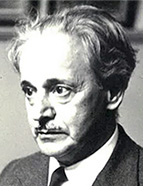

In significant proximity to António Sérgio, also found in other aspects where the rational and idealistic reformist background emerged, such as the subsumption of the interest in the past to the understanding of the present, he expressed his concern about the predominance of anti-rationalist historiography, based on sentimentality and the licence to extract judgements of value from it that were as absolute as they were hollow, which the reinvigorated Sebastianism favoured. He , thus , sealed his connection to the Seara Nova movement and its mentors after a brief stint with Lusitanian Integralism, whose doctrinal programme proved incompatible with the individualist and cosmopolitan formula of his monarchism .
This was never denied ; instead, it was consolidated by his repudiation of the totalitarian impulses that swept through the 20 th century, of the warfare catastrophe caused by the Nazis, whose rise he saw because he was in Germany in 1933 and even got to witness the burning of books, as well as the dictatorship of the Estado Novo, against which he stood up. This opposition was mostly palpable in 1958 when he was involved in inviting the socialist Aneurin Bevan to Portugal, which earned him a short spell in prison . A nd above all, in General Humberto Delgado ’ s presidential campaign, for which he was the national representative. Most likely, his renewed interest in matters of historiography was justified by the tension between this bias towards the doctrinal spectrum of the regime ’ s opponents, loyalty to a moderate, democratic and non-partisan position guided by Enlightenment values far removed from revolutionary ideals, such as those he identified in Marxism, whose temporal impact he realised but that a molehill of arguments – already fully formulated in Paradoxos Sociológicos [ Sociological Paradoxes] (1948) about the contradiction inherent in the idea of dialectical materialism and the epistemic unfeasibility of determining a plan, a legality or even any direction in H istory ( OF III , p. 291-290) – dictated a withdrawal and the realisation that the profound changes of the post-war period brought different aspects .
This work is financed by national funds through FCT - Foundation for Science and Technology, I.P, in the scope of the projects UIDB/04311/2020 and UIDP/04311/2020.
